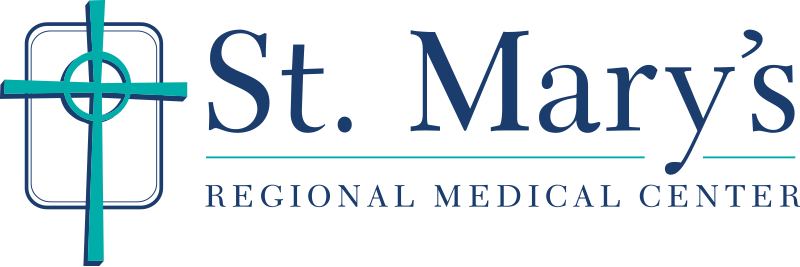St. Mary’s Regional Medical Center is Open for Medical Emergencies, Including Support for Heart Attack, Stroke and Other Serious Medical Conditions

St. Mary’s Regional Medical Center and St. Mary’s Physician Associates want to remind the community that our Emergency Department is open for medical emergencies, including support for heart and brain procedures related to heart attacks, stroke and more.
The COVID-19 pandemic has created an unprecedented time among our communities and in our healthcare system. It has led to extreme yet critical measures, such as social distancing and Safer-At-Home, in the hopes of keeping as many people safe and healthy as possible.
St. Mary’s Regional Medical Center’s Chief Medical Officer, Michael Pontious, MD, says, “We understand home isolation is being encouraged; however, we want to remind you this is not the same as medical isolation. If you are having symptoms that could possibly be an indicator of a medical emergency, such as chest pain, difficulty breathing, trouble lifting your arms, and weakness, please visit your nearest Emergency Department. Heart attacks and strokes don’t stop during a pandemic, so if you are experiencing these symptoms, please don’t delay in seeking emergent care – just like you would have done before COVID-19.”
St. Mary’s Emergency Department is open 24/7 and provides care for patients of all ages. “We don’t want people to wait too long before coming to the Emergency Department for their life-threatening conditions, due to an understandable fear of being exposed to COVID-19,” says Dr. Pontious. “We have a special process for protecting our patients during medical emergencies and want to reassure the community that these procedures are in place at St. Mary’s Regional Medical Center.”
Dr. Pontious emphasizes that prolonged medical isolation when you’re experiencing concerning symptoms may have a detrimental effect on your health. He strongly encourages people to seek immediate medical care in these situations.
Learn the signs and symptoms of a possible Stroke or Heart Attack.
If you are having mild respiratory symptoms or flu-like illness, it is best to stay home and manage your symptoms in consultation with your primary care provider. This helps to protect you, your family, and the patients in the Emergency Department. However, should your symptoms worsen, or you have an injury, our Emergency Department is here for you.
